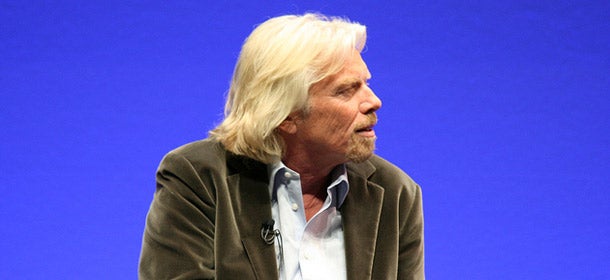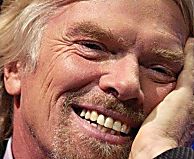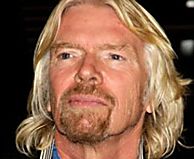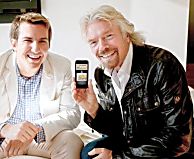Richard Branson on Learning by Doing
Editor's Note: Entrepreneur Richard Branson regularly shares his business experience and advice with readers. Ask him a question and your query might be the inspiration for a future column.
Q: Virgin works in a variety of industries -- you jumped from magazines to records to air travel, and from there to soft drinks, space flights and so on. Do you need to have prior knowledge of the industry you want to start a business in? How have you started up one business after another and succeeded again and again? -- Hernan Gaytan
Successful entrepreneurs tend to be insatiably curious about almost everything, and often they are good at learning by doing. Their open-minded, can-do attitude is among their best assets. Hernan, if this describes you and you’re thinking about starting up a business, you’re already on your way!
Please don’t get hung up on this question of whether you need to have experience in an industry before you launch your startup. Instead, think about changes you’d like to see as a customer -- even if you’ve just noticed little details that need tweaking. An amalgam of those changes may add up to a big idea that leads to a new and truly disruptive product or service.
This is essentially how we at Virgin launched our first successful businesses. We were very sensible when we started out, setting up connected enterprises like most other companies do. We went from running a small record shop to starting up a record label with recording studios and then added our large music megastores to our portfolio.
Though we were music fans, we knew little or nothing about any of those businesses, but we learned that this wasn’t necessarily a drawback. We were young and stubborn, and we liked to do things our own way; paradoxically, our enterprises thrived as a result. It turned out that our customers welcomed the changes that we were making, like inviting music lovers to spend hours in our record shops, hanging out and talking about music, rather than pushing them to make their purchases and get out.
The big leap came when I decided that it was time to start a new trans-Atlantic airline. I took the same approach: I knew nothing about air travel, but as I’d flown back and forth from Britain to the United States on business for Virgin Records, I’d become convinced that there had to be a better way. The prices were high and the service was dreadful.
When I showed my partners in the record company the proposal for a new airline, they thought I’d gone mad. So did our bankers, who dumped us. As we went ahead with the launch, the experts and our rivals said it was the wrong idea at the wrong time, and that Virgin Atlantic Airways was doomed to failure.
We proved them all wrong. We succeeded because we didn’t just create another “me too” airline, but took the same creative, customer-focused approach we had with our music businesses. We added all kinds of little service extras, the greatest of which was hiring cabin crew members who were actually nice to passengers -- a detail that our competitors had overlooked! Thirty years later that company is still setting the standard in terms of the value and service excellence we offer.
By the time we started up businesses like Virgin Mobile in Britain, that approach was in our company’s DNA. We believed that we could improve the service and the value offered to mobile customers in Britain, so we did. One change we made was to let our customers buy a SIM card without a phone; this was very different from other companies, many of which required that their customers buy expensive phones.
Since we created the Virgin brand in 1970, we’ve launched something like 400 businesses. Though not all of them did well, we learned a lot from our failures. The common thread to our successes is our desire to do something better: Our teams of engaged, passionate people always have highly collaborative fun together as we upset our competitors’ ideas of what customers want.
These days, when we sail into uncharted waters, we try to hire CEOs and management team members who have worked in the industry and who know what to avoid. Such people frequently join us from a dominant player in the sector, where their ideas and ambitions were stifled by practices that are hierarchical, blinkered and focused on the bottom line. We look for people who want to bring radical change to an industry, give them the freedom to get creative and the backing of our brand, and then we step back and watch them fly.
People often remark to me that it’s great how Virgin thinks outside the box. They are genuinely surprised when I tell them, “Actually we don’t! We just never let the box get built in the first place.” It’s a great approach, and no matter where your business is based or which industry you’re tackling, it’s likely to work for you too.
The author is an Entrepreneur contributor. The opinions expressed are those of the writer.





























































No comments:
Post a Comment
Note: Only a member of this blog may post a comment.